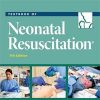Inflammatory and Immunosuppressive Responses to COVID-19 and Bacterial Sepsis
frontiersin.orgBacterial sepsis patients had early, severe inflammation, profound immune suppression, and life-threatening organ dysfunction that resolved over time; SARS-CoV-2 patients had less severe early inflammation and organ dysfunction but had persistent inflammation and immunosuppression and suffered worse clinical outcomes, especially when SARS-CoV-2 infection was followed by secondary bacterial infection.
These observations must be interpreted in the context that the host responses to viral and bacterial sepsis differ substantially, and that bacterial sepsis patients received treatment with curative intent while SARS-CoV-2 patients received supportive care alone.
Profound and comprehensive immunosuppression in both groups was evident by suppressed HLA-DR expression, reduced IFN-gamma production, and increased sPD-L1 concentrations, suggesting vulnerability to secondary infections and the inability to resolve the initial septic insult without exogenous, curative treatment.

















